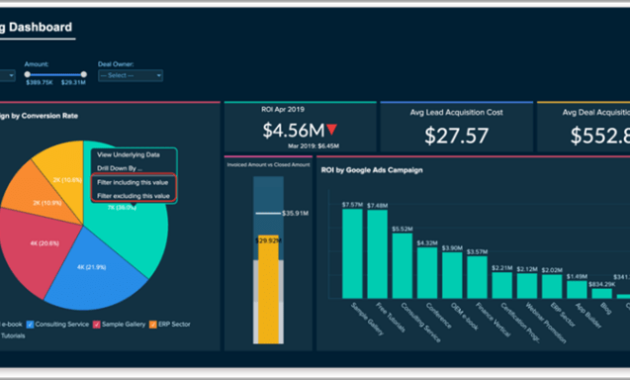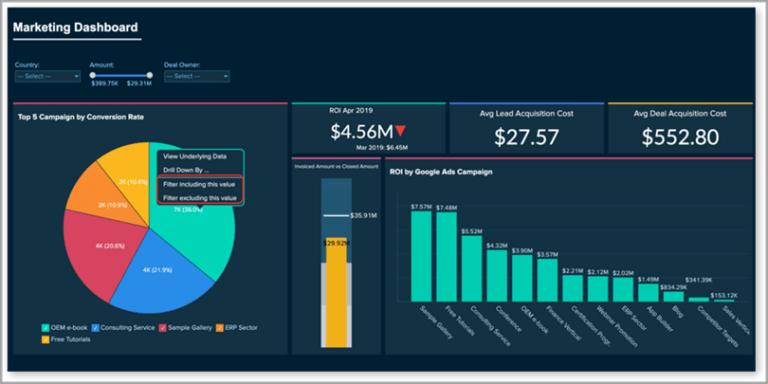
Business Intelligence Tools to Schedule Data Alerts: A Comprehensive Guide
In today’s data-driven world, businesses are constantly seeking ways to extract valuable insights from their information. The ability to quickly understand trends, identify anomalies, and make informed decisions is crucial for success. This is where Business Intelligence (BI) tools come into play. These tools provide the means to collect, analyze, and visualize data. A critical function of many BI tools is the ability to schedule data alerts. This article will delve into the significance of Business Intelligence tools to schedule data alerts, explore the key features, and provide guidance on selecting the right tools for your needs.
The Power of Scheduled Data Alerts
Data alerts are automated notifications triggered by specific conditions within your data. They act as early warning systems, alerting you to critical changes, potential problems, or significant opportunities. Instead of manually monitoring dashboards and reports, scheduled alerts proactively notify you when important events occur. This saves time, reduces the risk of missing crucial information, and enables faster responses.
Consider a retail business. A scheduled data alert could notify management if sales of a particular product fall below a certain threshold. This allows them to quickly investigate the reason for the decline, whether it’s a competitor’s promotion, a supply chain issue, or a change in consumer preferences. Without this alert, the business might only realize the problem after significant losses have occurred. This is the power of effective Business Intelligence tools to schedule data alerts.
Key Features of BI Tools for Scheduling Alerts
The best Business Intelligence tools to schedule data alerts offer a range of features to meet diverse business needs. Here are some essential capabilities:
- Data Connectivity: Seamless integration with various data sources, including databases, spreadsheets, cloud services, and APIs, is fundamental. The tool must be able to access the data you need to monitor.
- Alerting Conditions: The ability to define specific conditions that trigger alerts is crucial. This includes setting thresholds (e.g., sales below a certain amount), comparing values (e.g., year-over-year changes), and identifying anomalies (e.g., sudden spikes or drops in traffic).
- Scheduling Options: Flexibility in scheduling alert delivery is essential. Options should include hourly, daily, weekly, or monthly schedules, as well as the ability to set specific times.
- Notification Methods: Support for various notification methods, such as email, SMS, and mobile app notifications, is important. The tool should allow you to choose the most appropriate method based on the urgency of the alert.
- Customization: The ability to customize alert content, including the subject line, message body, and data visualizations, enhances their effectiveness. Tailoring alerts to specific recipients ensures relevant information delivery.
- User Management: Robust user management features enable you to control access to alerts and reports, ensuring data security and privacy.
- Reporting and Dashboards: While the primary function is alerts, the best BI tools often integrate with reporting and dashboards. This allows users to drill down into the data that triggered the alert for deeper analysis.
Top Business Intelligence Tools with Alerting Capabilities
Several Business Intelligence tools excel in providing robust alert scheduling features. Here are some of the leading options:
Tableau
Tableau is a widely used BI platform known for its powerful data visualization capabilities. It allows users to create interactive dashboards and set up data-driven alerts. Tableau’s alert feature enables users to receive notifications based on changes in their data. The alerts can be customized to notify via email. The integration with various data sources is extensive.
Microsoft Power BI
Microsoft Power BI is another popular choice, particularly for organizations already invested in the Microsoft ecosystem. It offers a comprehensive suite of features, including data visualization, data modeling, and alert scheduling. Power BI allows users to set up alerts based on data thresholds and receive notifications via email. It’s relatively easy to use and integrates well with other Microsoft products. Power BI is a strong contender for Business Intelligence tools to schedule data alerts.
Qlik Sense
Qlik Sense is known for its associative data engine, enabling users to explore data relationships in a unique way. It also provides robust alerting capabilities. Users can create alerts based on data changes and receive notifications. Qlik Sense supports various notification methods and offers customization options. It is a powerful Business Intelligence tool.
Looker (Google Cloud)
Looker, now part of Google Cloud, is a modern BI platform that emphasizes data governance and collaboration. It offers a sophisticated alerting system. Looker’s alerts can be triggered by various conditions and delivered through different channels. It offers advanced customization options and integrates well with other Google Cloud services. It is a great choice for Business Intelligence tools to schedule data alerts.
Sisense
Sisense is a BI platform designed for complex data analysis and embedded analytics. It provides powerful alerting features. Users can define custom alerts based on data changes and receive notifications via email or other channels. Sisense is known for its ability to handle large datasets and provide real-time insights. It is an excellent example of Business Intelligence tools to schedule data alerts.
Selecting the Right BI Tool for Your Needs
Choosing the right Business Intelligence tool to schedule data alerts depends on several factors. Consider the following:
- Your Data Sources: Ensure the tool supports connectivity to your existing data sources.
- Your Budget: BI tools vary in price, ranging from free open-source options to enterprise-level subscriptions.
- Your Technical Expertise: Some tools are easier to use than others. Consider the skill level of your team.
- Your Alerting Requirements: Evaluate the specific types of alerts you need and the level of customization required.
- Scalability: Choose a tool that can handle your current data volume and scale as your business grows.
- Integration: Consider how well the tool integrates with your existing IT infrastructure.
It’s often beneficial to test different tools through free trials or proof-of-concept projects before making a final decision. This allows you to assess their features and usability in your specific context.
Best Practices for Implementing Data Alerts
Once you’ve chosen your Business Intelligence tool, follow these best practices for implementing effective data alerts:
- Define Clear Objectives: Determine the specific business problems you want to solve with alerts.
- Identify Key Metrics: Identify the critical data points to monitor.
- Set Realistic Thresholds: Avoid overly sensitive alerts that generate excessive notifications.
- Customize Alert Content: Provide context and actionable insights in your alert messages.
- Test Your Alerts: Verify that your alerts are triggered correctly and deliver the expected information.
- Monitor and Refine: Regularly review your alerts and adjust them as needed to ensure they remain relevant and effective.
- Train Your Team: Ensure that users understand how to interpret and respond to alerts.
- Document Your Alerts: Maintain clear documentation of your alerts, including their purpose, logic, and recipients.
The Future of Data Alerts in Business Intelligence
The evolution of Business Intelligence tools to schedule data alerts is ongoing. We can expect to see several key trends in the future:
- Increased Automation: AI and machine learning will play a greater role in automatically identifying anomalies and generating alerts.
- Enhanced Personalization: Alerts will become more tailored to individual users and their specific roles.
- Improved Integration: BI tools will seamlessly integrate with a wider range of applications and platforms.
- Real-time Data Processing: The ability to process data and trigger alerts in real-time will become increasingly important.
- Proactive Insights: Alerts will not only notify users of problems but also provide recommendations and proactive insights.
As Business Intelligence tools continue to evolve, data alerts will become even more crucial for helping businesses stay ahead of the curve. By embracing these trends, organizations can unlock the full potential of their data and make more informed decisions.
Conclusion
Business Intelligence tools to schedule data alerts are essential for businesses seeking to leverage the power of their data. By implementing these tools, organizations can proactively monitor their key metrics, identify potential problems, and seize new opportunities. Selecting the right tool and following best practices are crucial for maximizing the value of data alerts. As the business landscape becomes increasingly data-driven, the ability to effectively utilize these tools will be a key differentiator. Investing in these tools is an investment in future success. Embrace the power of these tools and unlock the full potential of your data!
[See also: Related Article Titles]

